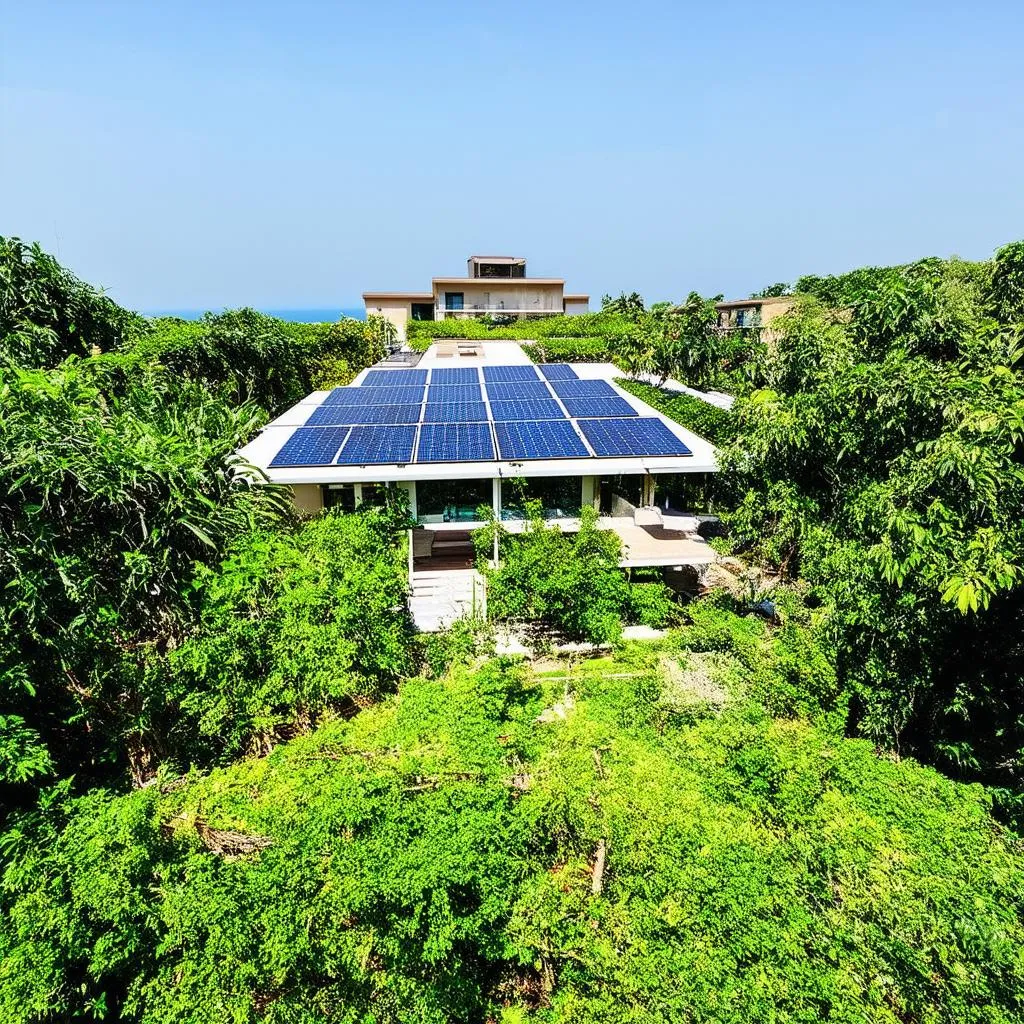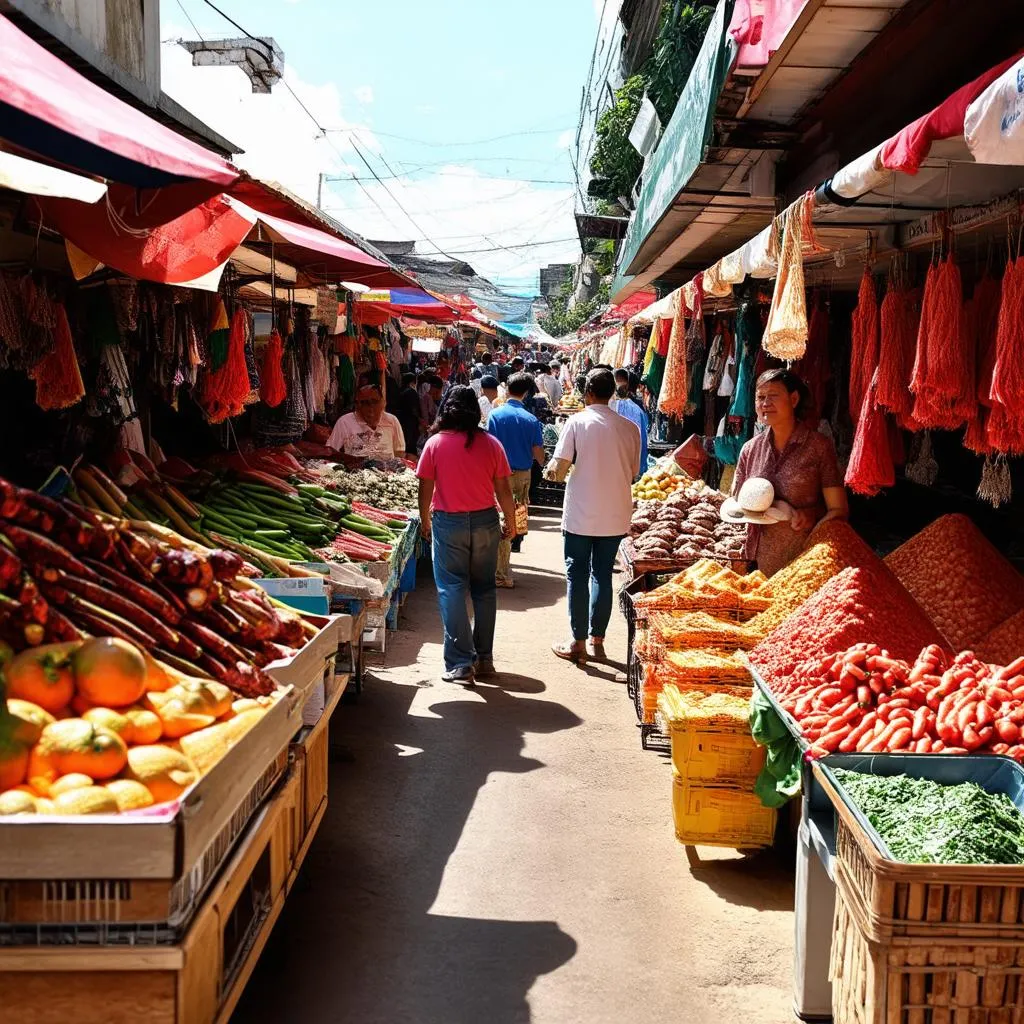Have you ever stood on a pristine beach, gazed at a majestic mountain range, or wandered through a vibrant coral reef, and felt a sense of awe and wonder? These incredible experiences are what travel is all about, connecting with nature and exploring the beauty of our planet. But what if our actions as travelers inadvertently harmed these very places we cherish?
The truth is, tourism, while a powerful force for good, can also strain the environment. Thankfully, there are a plethora of sustainable travel solutions emerging, allowing us to explore the world responsibly and ensure future generations can enjoy the same breathtaking sights.
What Does Sustainable Travel Really Mean?
Sustainable travel, also known as eco-tourism or responsible travel, goes beyond simply minimizing our negative impact. It’s about actively contributing to the well-being of local communities and the environment. Think of it as leaving a positive footprint on the places you visit.
Practical Solutions for the Eco-Conscious Traveler
Ready to make a difference? Here are some practical tips and examples:
1. Choose Your Transportation Wisely
- Opt for direct flights: Did you know that takeoff and landing contribute significantly to carbon emissions?
- Embrace slow travel: Consider train journeys or road trips to experience the countryside and reduce your footprint. For example, a train trip through the Swiss Alps offers breathtaking scenery while being a more eco-friendly option compared to flying.
- Walk, cycle, or use public transport: Exploring a city on foot or by bicycle not only reduces emissions but also provides a more immersive experience.
2. Support Local Businesses and Communities
- Stay in eco-friendly accommodations: Look for hotels and guesthouses committed to sustainable practices such as energy efficiency, water conservation, and waste reduction.
- Savor local cuisine: Indulge in dishes made with locally sourced ingredients to support local farmers and reduce the carbon footprint of your food.
- Purchase souvenirs from local artisans: Bring home authentic crafts and support the local economy.
3. Minimize Your Impact on Nature
- Pack light: The heavier the plane, the more fuel it consumes.
- Conserve water: Be mindful of your water usage, especially in areas facing water scarcity.
- Say no to single-use plastics: Carry a reusable water bottle, coffee cup, and shopping bag.
- Respect wildlife: Observe animals from a distance and avoid any activity that could disrupt their natural behavior.
 Eco-friendly Hotel
Eco-friendly Hotel
Planning Your Sustainable Adventure
Here’s a simple guide to help you plan a more eco-conscious trip:
1. Research Your Destination:
- Environmental considerations: Are there any specific environmental concerns or conservation efforts at your destination? For instance, if you’re visiting a coastal area, learn about local initiatives to protect marine life.
- Sustainable tourism operators: Seek out tour companies and accommodations with a strong commitment to sustainability.
2. Pack Smart:
- Reusable items: Pack a reusable water bottle, coffee cup, cutlery, and shopping bag.
- Eco-friendly toiletries: Choose biodegradable and reef-safe sunscreen and toiletries.
3. Engage Respectfully:
- Learn a few local phrases: Showing respect for the local culture goes a long way.
- Support local conservation efforts: Consider volunteering or donating to organizations working to protect the environment.
FAQs About Sustainable Travel
Q: Is sustainable travel more expensive?
A: Not necessarily! Many eco-friendly options, like walking and using public transportation, can actually save you money. Plus, supporting local businesses often means getting better value for your money.
Q: What are some examples of eco-friendly activities?
A: Hiking, cycling, kayaking, wildlife watching, and visiting national parks are fantastic ways to experience nature responsibly.
Q: How can I find sustainable accommodations?
A: Look for certifications like LEED (Leadership in Energy and Environmental Design) or Green Globe, which indicate a commitment to sustainable practices. Travelcar.edu.vn also provides resources and recommendations for eco-friendly accommodations in various destinations.
 Local Market
Local Market
The Feng Shui of Sustainable Travel
Interestingly, the principles of sustainable travel resonate with the ancient Chinese philosophy of Feng Shui. Just as Feng Shui seeks to create harmony between humans and their environment, sustainable travel encourages us to live in balance with nature. When we travel responsibly, we contribute to the positive flow of energy, or “chi,” in the places we visit.
Travelcar.edu.vn: Your Guide to Sustainable Adventures
At TRAVELCAR.edu.vn, we believe that travel has the power to transform lives and connect us with the beauty of our planet. We’re passionate about promoting sustainable travel practices and providing resources to help you make responsible choices. Explore our website for tips, destination guides, and inspiration for your next eco-conscious adventure.
Conclusion: Leave Only Footprints, Take Only Memories
By embracing sustainable travel solutions, we can explore the world while protecting it for future generations. Let’s all do our part to ensure that the breathtaking landscapes, vibrant cultures, and incredible wildlife we cherish today remain for travelers to experience for years to come.
What are your thoughts on sustainable travel? Share your experiences and tips in the comments below!

